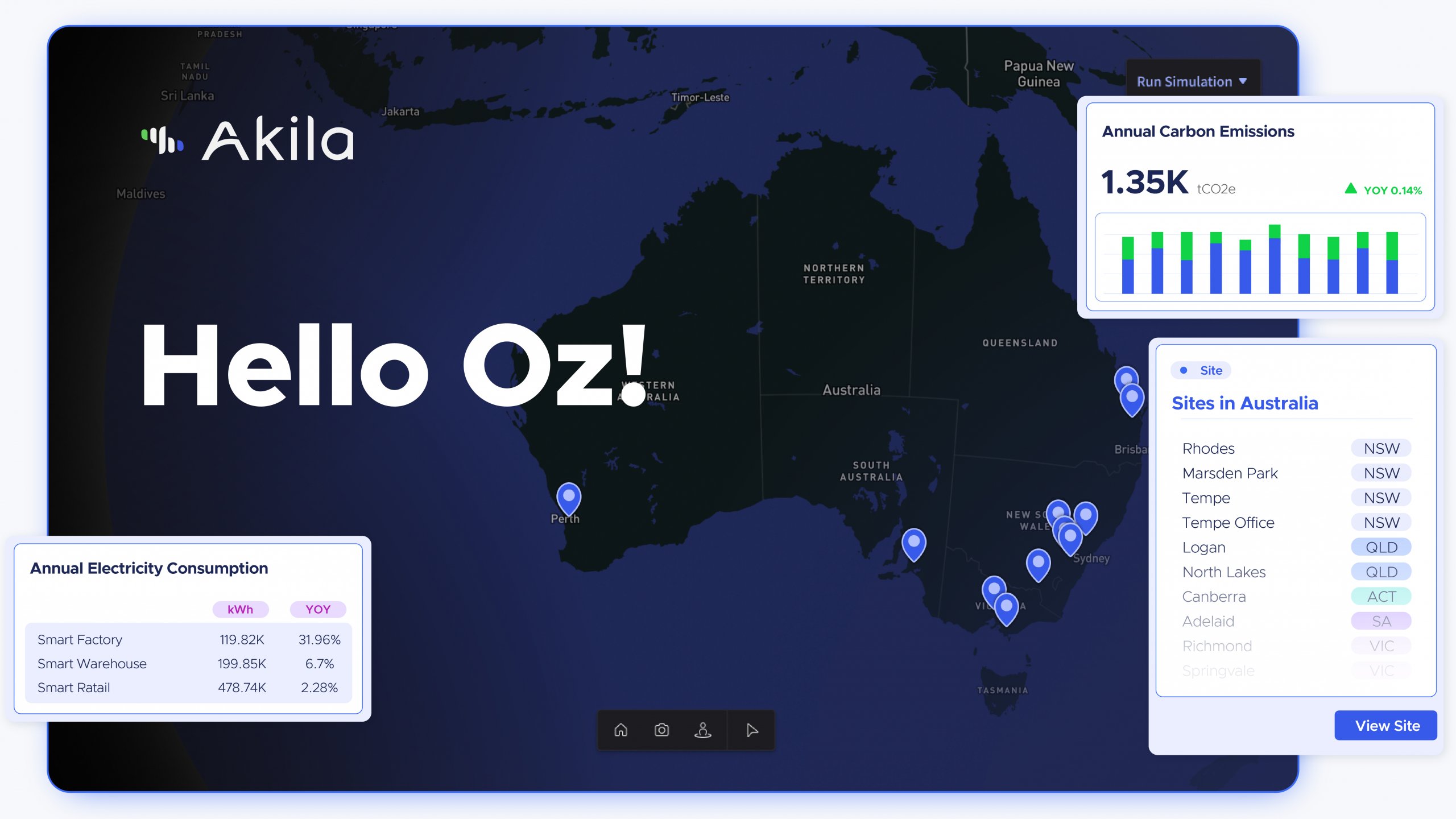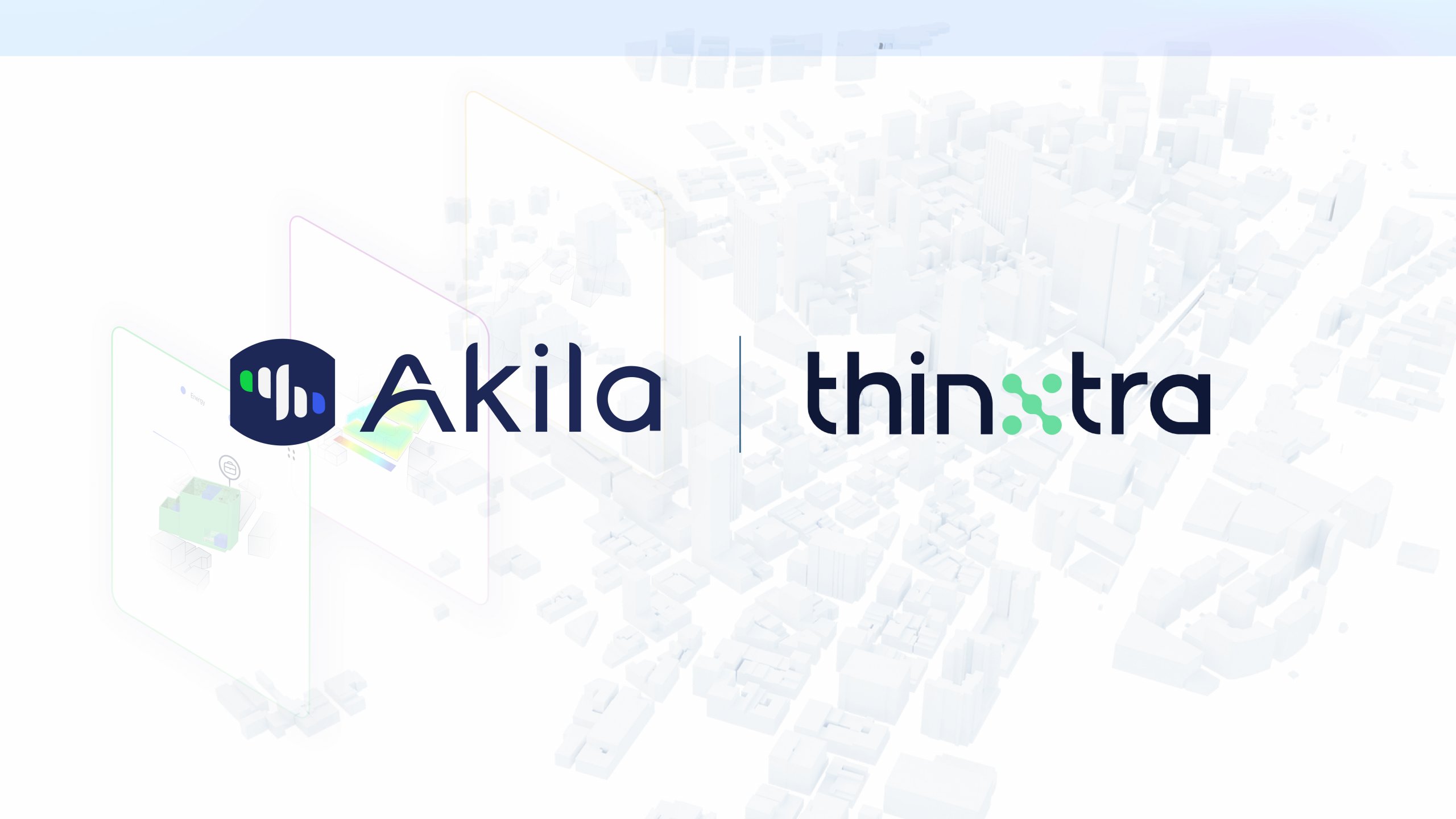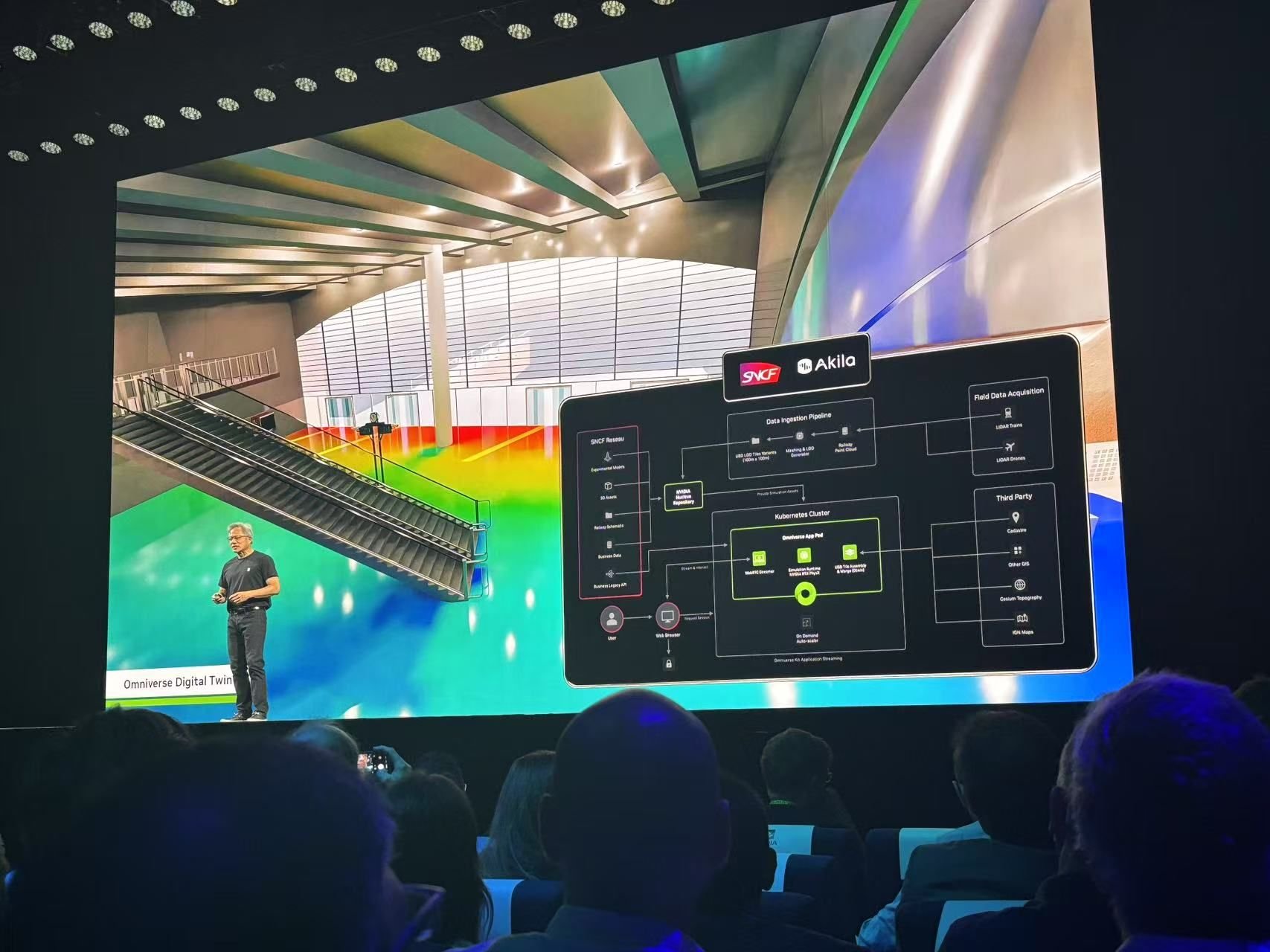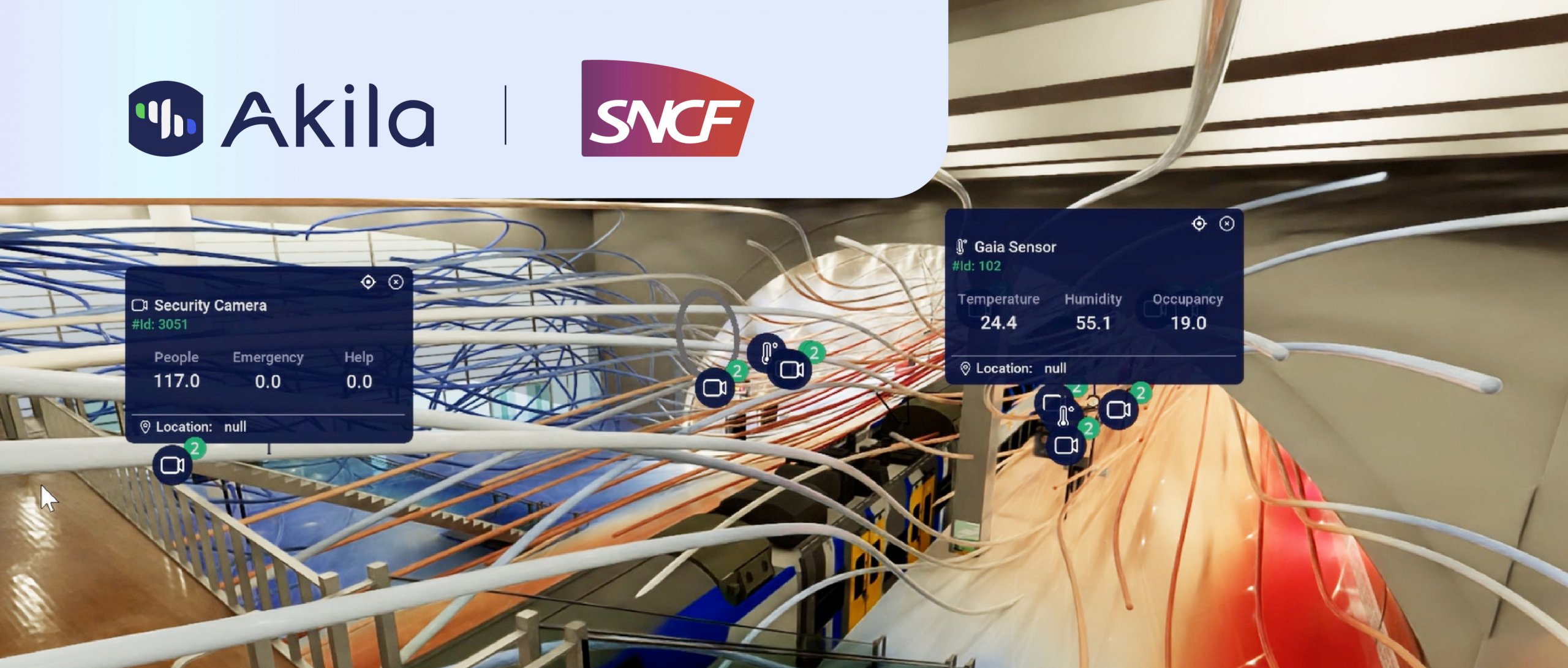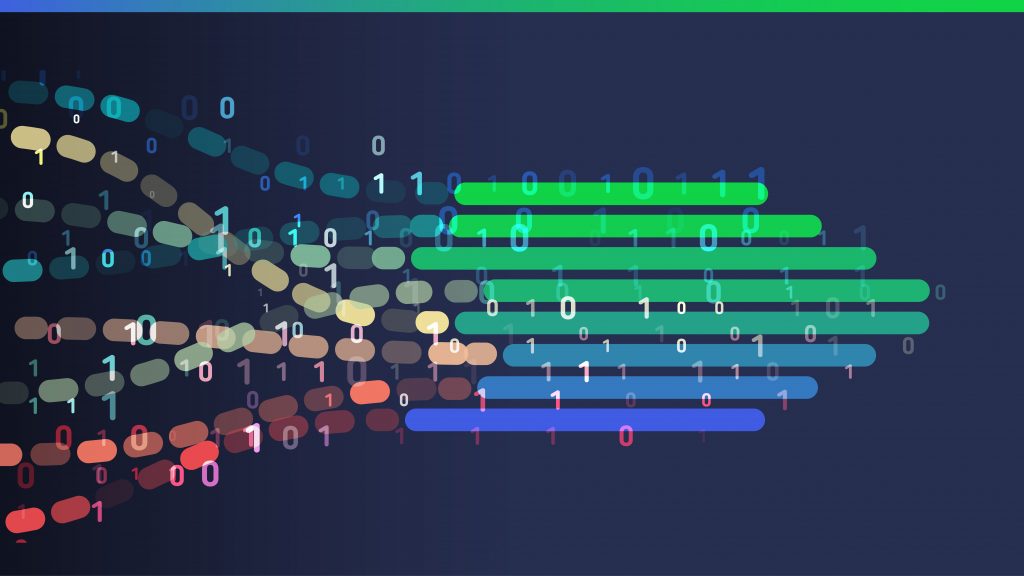
As companies rush to transition towards more sustainability and accountability, out of pressure from regulators and investors, there has never been more of a need for data about their buildings. Buildings are central sources for ESG reporting data and targets of sustainable transformation projects. This data is not only relevant for decision-makers within the company but also supports external stakeholders such as customers and investors, as well as regulatory bodies such as financial institutions or the government.
But how can organizations get the verifiable, validated data they need? Enter the three Ts – transparent, traceable, and trackable – the data-driven, or qualitative, approach to how Akila builds our digital twin platform.
Previously, data about building operations were collected through slow and lengthy processes such as documenting, surveying and form processing. Much of the data was paper-based and held in dusty cabinets, often never seeing the light of day. It was time-consuming to collect and incredibly difficult to cross-reference and draw conclusions.
Then came a variety of tools used to help with building and facility management, such as BMS, EMS, or CMMS. But then the problem was that the data was siloed and disconnected. It might have been transparent, traceable, or trackable, but it was not all three. The only way to bring it all together was to build a new platform capable of integrating the functionality and data of each system. That’s what we did with Akila.
The Akila digital twin platform digitalized the entire data-collection process with real-time and historical data all in one place. We eliminated the siloes between different systems and allowed them to be cross-referenced for analysis. Furthermore, we built out dashboards and reporting features that make it that much easier to navigate. Akila is a platform that delivers on all 3 Ts.
Transparent data
Transparent data is a key component of the three Ts. It refers to data that is a straight shot from the investor to the meter, such as an energy or water meter. This data can be drilled down to the provider, whether that be a machine, sensor, or individual operator.
Transparent data is useful for everyone in a company, particularly for decision-makers, as well as external stakeholders such as customers, clients, investors, and regulators. When a company claims its energy use or carbon footprint, this data needs to be audited or reviewed by a third party. With transparent data, this person can look at the data from an entire site down to each piece of equipment.
Akila provides transparent data through digitalization. Digitalization ensures that the data is validated and trustworthy, verifiable, and valuable. The platform itself is a digital twin, meaning whatever happens, happens at the exact time and digital space in the twin. Akila itself is built on a foundation of data transparency using IoT, cross-module data, dashboarding, and reporting to ensure that the data is accessible and easy to understand.
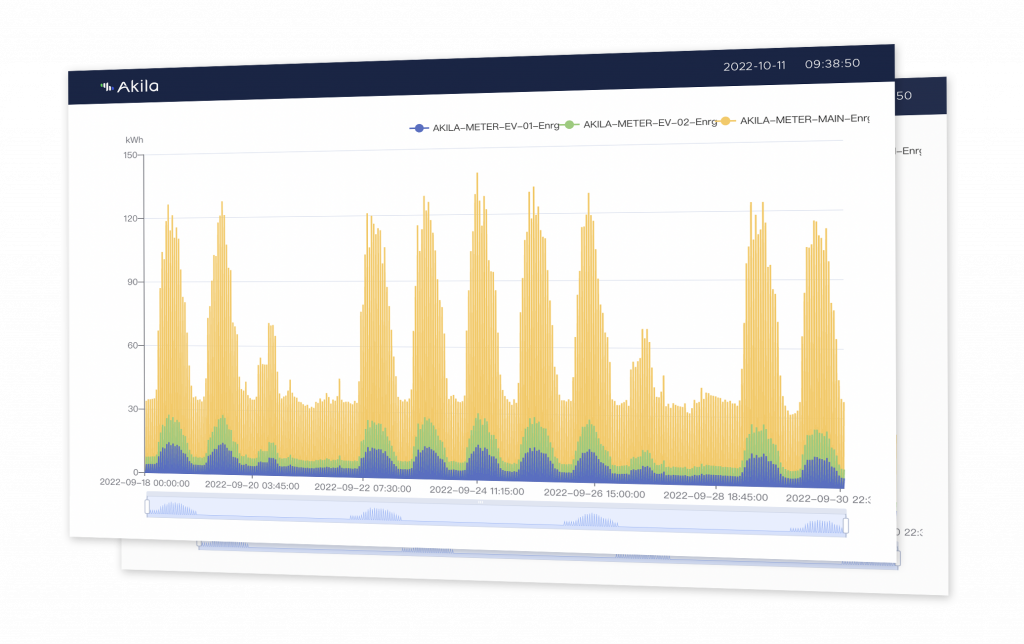
Time series analysis
Traceable data
Traceable data is another important component of the three Ts. It refers to data that can be traced back to where an anomaly occurs, allowing for analysis and cross-referencing of data at a specific site.
Traceable data is particularly useful for identifying areas of improvement, or sources of anomalies. This data allows decision-makers, managers, and operators to identify opportunities for improvement and potential returns, as well as help guide decision-making through simulation in a digital twin.
An example of traceable data in action could be a site manager noticing that energy use has broken the baseline for the past two consecutive months and needing to understand why. By looking deeper into the energy data, they notice that the demand for air compressors is higher than normal and investigate further. It turns out that some of the air compressors have leaks, which are adding up to higher energy usage. Traceable data allows the manager to identify the source of the problem and take action to resolve it.
Akila provides traceable data through time series analysis and cross-module data. This ensures that data can be analyzed and compared over time to identify patterns and potential areas for improvement.
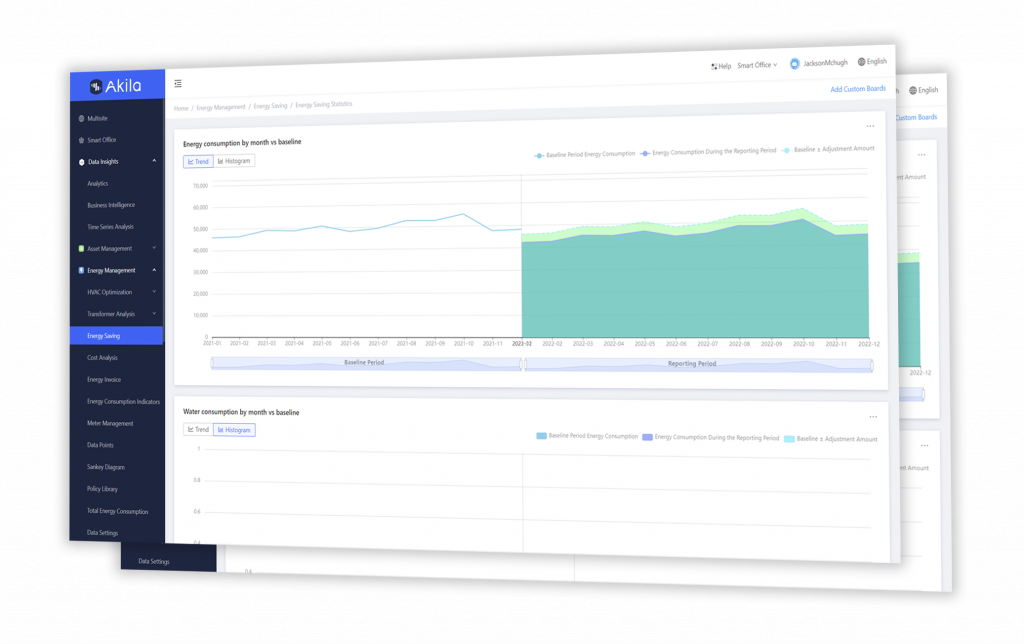
Energy tracking
Trackable data
The final component of the three Ts is trackable data. This refers to data that allows decision makers to see the full impact of where, how, and when improvements or deterioration occurs. It can include energy conservation measures, climate risk analysis, and more. Trackable data is important because it allows decision-makers to measure project success and KPIs, measure ROI, and improve planning and decision-making.
Trackable data is particularly important for high-level decision makers, such as directors and C-suite level executives, as well as project managers. An example of trackable data in action could be a site manager implementing a solution to repair the leaks in the air compressors and implementing leak-tracking software that automatically alerts staff when there are problems. After a year, the manager looks at the energy use and man hours spent on maintenance of air compressors compared to the previous year to judge how well those solutions paid off.
Akila provides trackable data over time, as the platform automatically collects data and shows it in real-time against baselines to judge performance. This allows decision-makers to see how projects are progressing and adjust as needed.
Summing up the 3 Ts
In summary, the three Ts – transparency, traceability, and trackability – are critical components in effective decision-making for company leaders. These data-driven approaches support both internal decision-making processes and external stakeholders such as customers, investors, and regulatory bodies. The advent of digitalization and platforms like Akila has made it easier for companies to collect and analyze data efficiently, allowing decision-makers to spend less time gathering data and more time acting on it.
Transparent data, traceable data, and trackable data are all essential for different aspects of decision-making, from validating and verifying information to identifying areas for improvement and measuring project success. With Akila’s platform providing IoT, cross-module data, dashboarding, reporting, and time series analysis, these three Ts are easily accessible to companies of any size. By leveraging these data-driven approaches, companies can make better-informed decisions that drive their success sustainably and responsibly, benefiting not only the company but also their stakeholders and the wider community.
